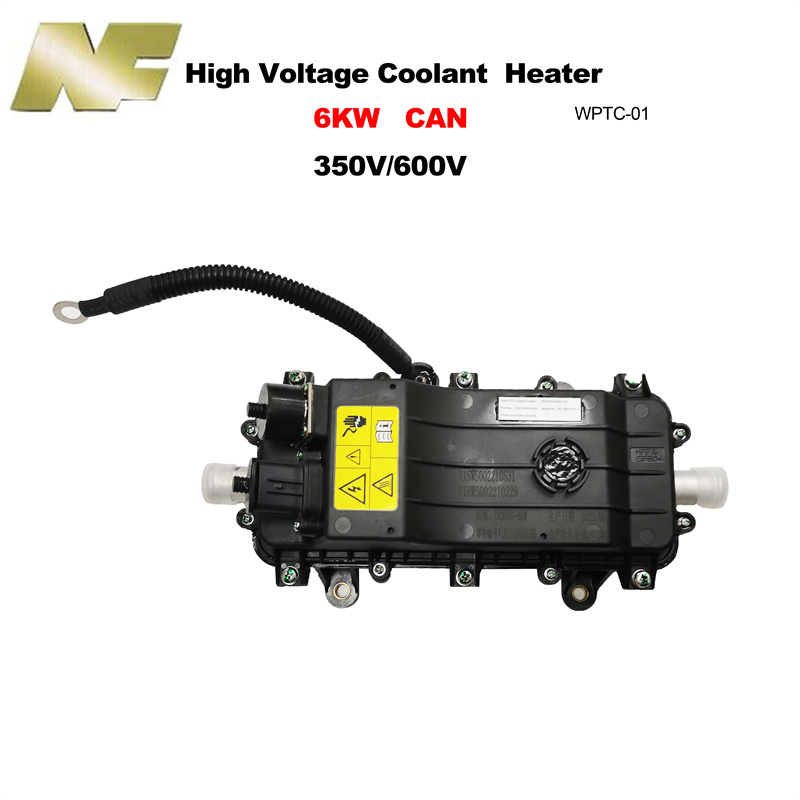Conventional internal combustion engine vehicles implement a heating system through the engine heated coolant. In diesel vehicles where the coolant temperature rises relatively slowly, PTC heaters or electric heaters are used as auxiliary heaters until the coolant temperature rises sufficiently. However, electric vehicles without an engine do not have an engine heat source, so a separate heating device such as a PTC heater or heat pump is required.
A PTC coolant heater for new energy vehicles is a device that uses a PTC heating element to heat the vehicle coolant. Its main function is to provide heat for the vehicle at low temperature so that key components such as the engine, motor and battery can operate normally. The PTC heating element is a self-recovery type thermistor element with high efficiency, stability and reliability. When the electric current passes through the PTC heating element, a thermal effect is generated, which causes the surface temperature of the element to rise, achieving the purpose of heating the coolant. Compared with the traditional electric heater, PTC water heater has the advantages of self-regulating power and stable temperature. In the low temperature environment, PTC water heater adjusts the heating power and temperature by controlling the size of the current to keep the vehicle's coolant in the appropriate temperature range, ensuring the normal operation of key components such as the engine, motor and battery. At the same time, the PTC water heater has high heating efficiency, which can heat the coolant to the appropriate temperature in a shorter period of time, shorten the warm-up time of the vehicle and improve the comfort and safety of driving. Advantages of PTC water heater: 1. can be designed with high power electric heater; 2. can meet the battery and cabin heating in the same circuit; 3. hot air is mild; 4. can be powered by high voltage with higher efficiency.

Post time: Apr-13-2023




